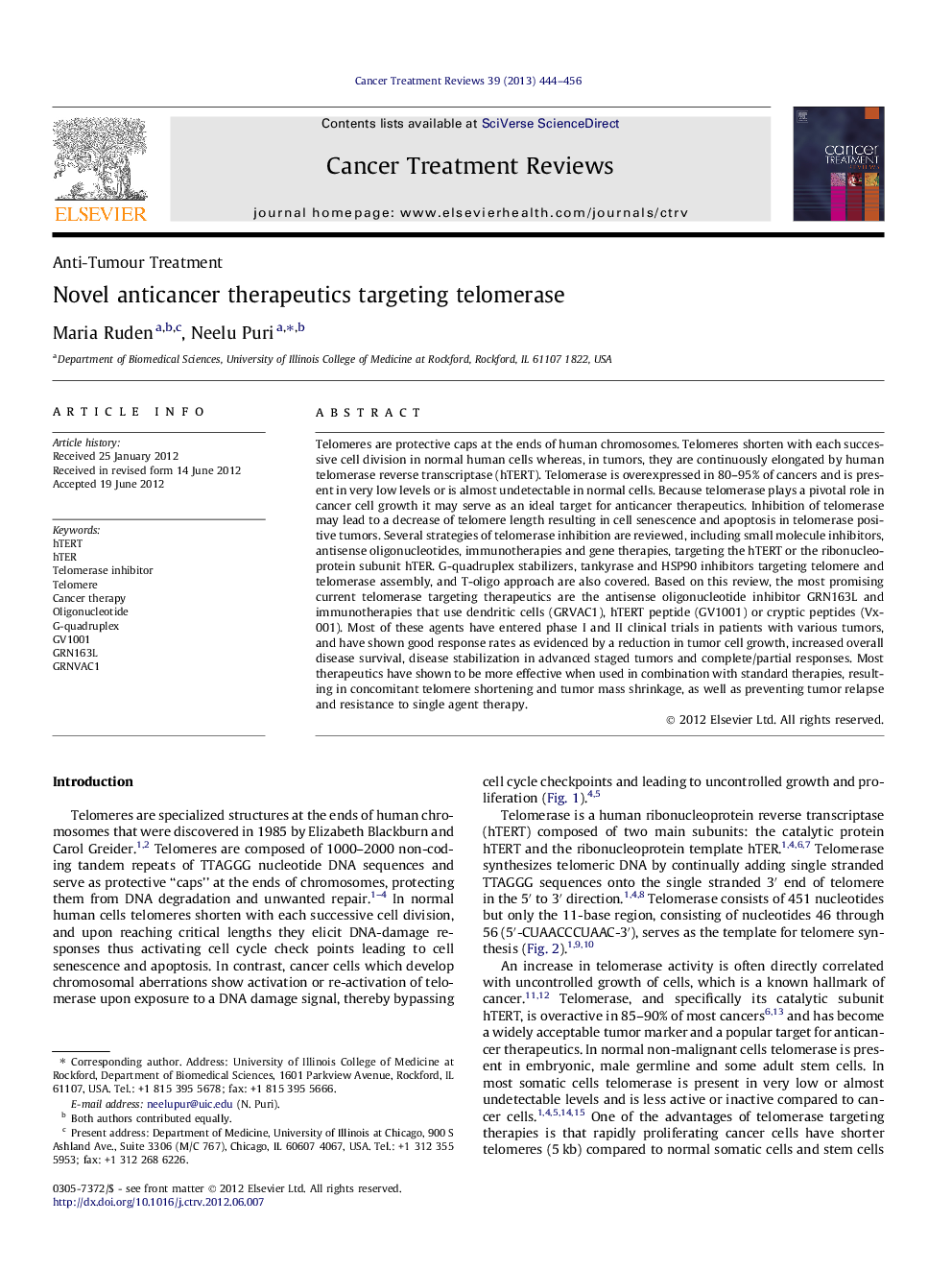| Article ID | Journal | Published Year | Pages | File Type |
|---|---|---|---|---|
| 3979868 | Cancer Treatment Reviews | 2013 | 13 Pages |
Telomeres are protective caps at the ends of human chromosomes. Telomeres shorten with each successive cell division in normal human cells whereas, in tumors, they are continuously elongated by human telomerase reverse transcriptase (hTERT). Telomerase is overexpressed in 80–95% of cancers and is present in very low levels or is almost undetectable in normal cells. Because telomerase plays a pivotal role in cancer cell growth it may serve as an ideal target for anticancer therapeutics. Inhibition of telomerase may lead to a decrease of telomere length resulting in cell senescence and apoptosis in telomerase positive tumors. Several strategies of telomerase inhibition are reviewed, including small molecule inhibitors, antisense oligonucleotides, immunotherapies and gene therapies, targeting the hTERT or the ribonucleoprotein subunit hTER. G-quadruplex stabilizers, tankyrase and HSP90 inhibitors targeting telomere and telomerase assembly, and T-oligo approach are also covered. Based on this review, the most promising current telomerase targeting therapeutics are the antisense oligonucleotide inhibitor GRN163L and immunotherapies that use dendritic cells (GRVAC1), hTERT peptide (GV1001) or cryptic peptides (Vx-001). Most of these agents have entered phase I and II clinical trials in patients with various tumors, and have shown good response rates as evidenced by a reduction in tumor cell growth, increased overall disease survival, disease stabilization in advanced staged tumors and complete/partial responses. Most therapeutics have shown to be more effective when used in combination with standard therapies, resulting in concomitant telomere shortening and tumor mass shrinkage, as well as preventing tumor relapse and resistance to single agent therapy.
